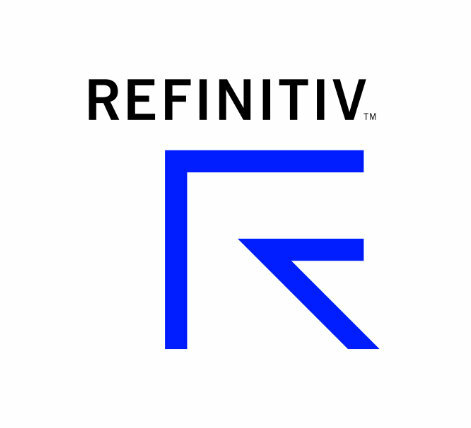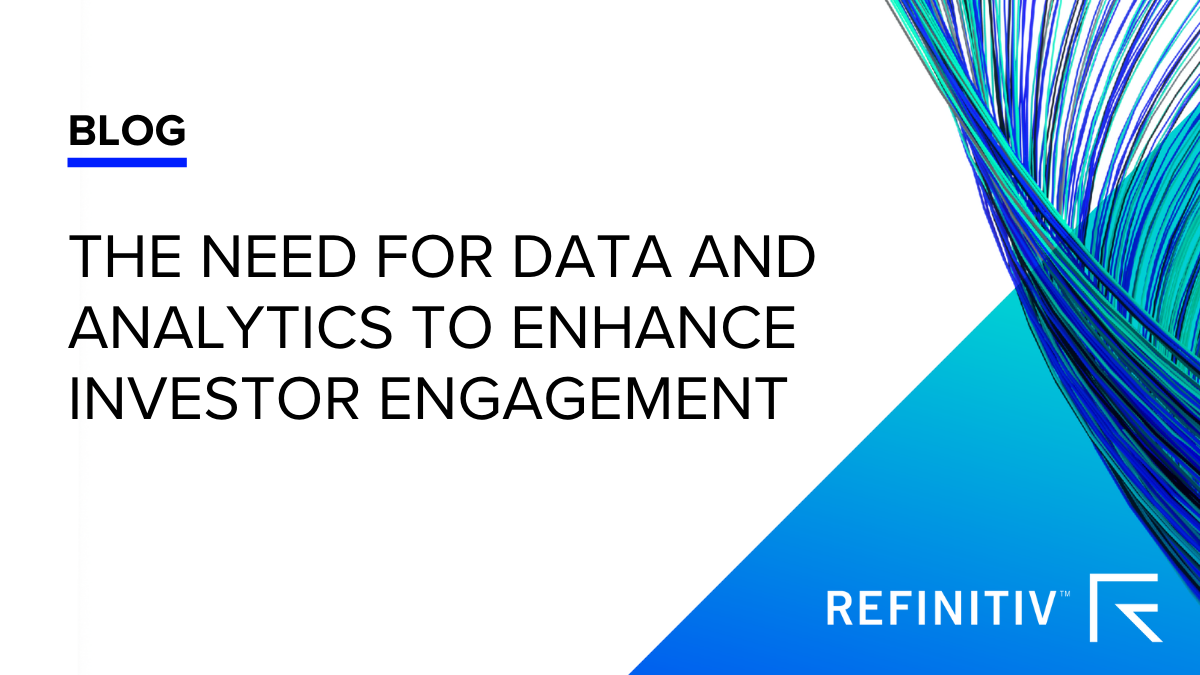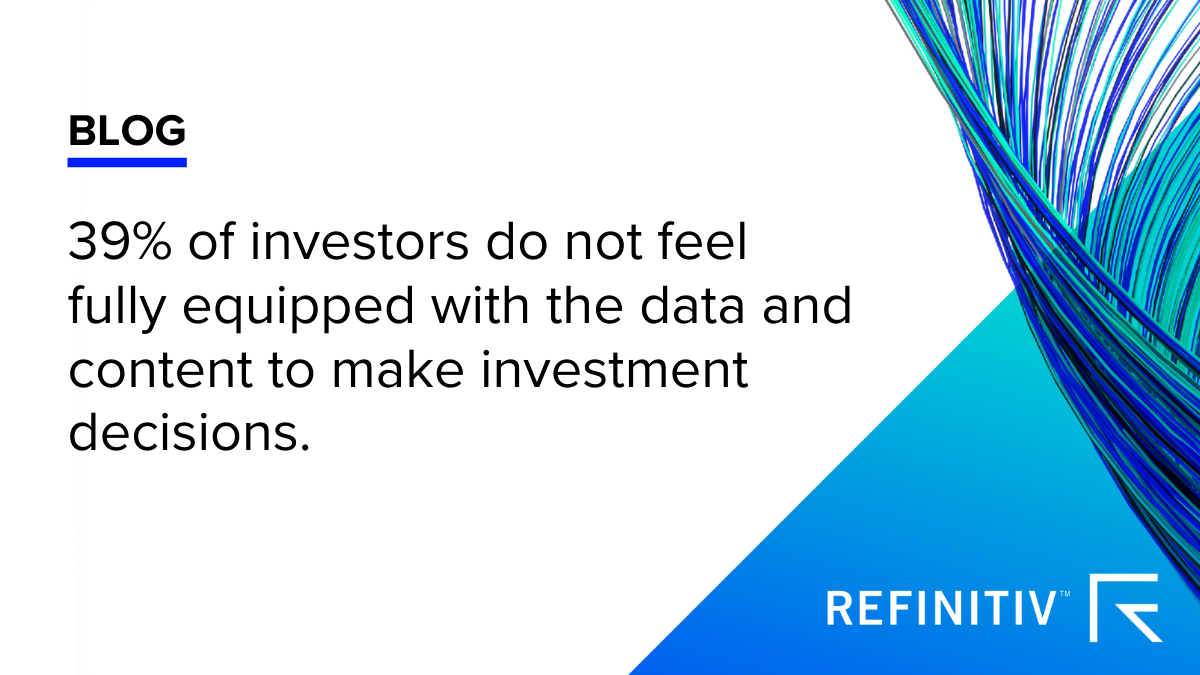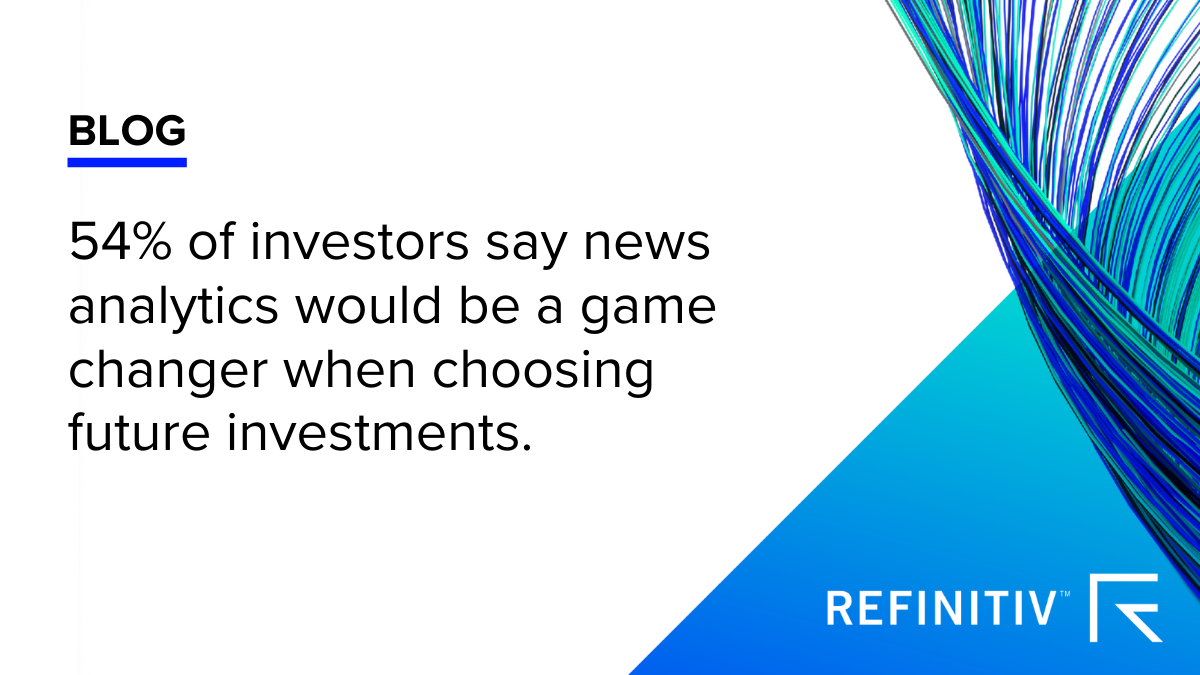
Insights & Opinions
The need for data and analytics to enhance investor engagement
Wed, 10 Mar 2021


How can wealth managers provide their clients with comprehensive data and analytics through a broad mix of digital channels, so they can make more informed investment decisions?
Key insights:
- The need to stay relevant and build loyalty by delivering an engaging investor experience is top-of-mind for many wealth managers.
- A new Refinitiv survey of over 1,000 investors uncovers key insights about investors’ evolving expectations since the start of the COVID-19 pandemic.
- The survey finds that data and analytics, especially alternative data, such as ESG and news analytics, will be key to meeting investor expectations and staying relevant.
Refinitiv’s latest global research report examines how investors’ trading activities, data needs and digital expectations are evolving, and delves into the critical role that data and analytics will play in a post-COVID-19 world.
The Gold Standard of Wealth Management: Redefining Investor Data Needs highlights how the pandemic created unprecedented levels of uncertainty, heightened levels of volatility, and changing investor expectations – all of which have led to increased client engagement and a growing appetite for advice, data and analytics.
Based on findings from our survey of over 1,000 self-directed and advisory clients across the globe, the report shines a spotlight on the role of data in the wealth industry, making it clear that investors, whether self-directed or advisory clients have a growing need for more comprehensive data offerings.
However, the report concludes that data alone may not be enough, investors are looking for a multi-channel digital experience that not only provides comprehensive data but helps them understand and manage that data to positively influence their investment decisions.
The growing need for data and analytics
Our headline finding is that clients’ needs are rapidly changing and that investors across the board require new data and digital capabilities in order to maximise opportunities and mitigate risks.
Survey results also revealed that firms are not keeping pace: 39 percent of investors do not feel adequately equipped with the data and content they need to make optimal investment decisions.

Respondents expressed an interest in being able to access a range of multimedia content, such as webinars, videos and podcasts, with the report concluding that wealth managers will in the future need to integrate high-quality data into multimedia content that can inform a broad mix of delivery channels.
This growing need for data is unfolding alongside increased trading frequency. When asked to what extent their investment activities had changed over the six months prior to September 2020:
- 38 percent of all respondents with a “trading mind-set” said their investment activities had become more frequent. This figure rose to 44 percent for millennial investors.
- Long-term investor behaviour also showed changes, with 23 percent of respondents overall saying that they had traded more frequently over this period.
While standard pricing data remains key, alternative sources of data are increasingly providing a fully rounded context. This is especially so during the heightened volatility of the last 12 months, and we see a clear growth in demand for environmental, social and governance (ESG) indicators, news and social media analytics.
Wealth managers need to focus on ESG investing
ESG investing continues to grow in popularity, even though access to quality ESG data remains a persistent hurdle.
A substantial 34 percent of respondents globally are more interested in ESG investing now than they were six-to-twelve months ago. Drilling down, millennial investors are strong drivers of this trend, with 61 percent more willing to invest in ESG now.
In order to maintain this momentum, providers need to deliver accurate, transparent ESG data that offers sufficient coverage to allow investors to benchmark companies and make meaningful comparisons.
Underlining the need for transparency is the fact that 24 percent of respondents cited greenwashing as a barrier to ESG investing.
Wealth providers should also make ESG data visually appealing and easy to consume, because ESG data and analytics are essentially ‘new’ to many investors.
Alternative data is seen as a “game-changer”
The survey found that investors are data-savvy. Many navigate multiple sources of data during the investment decision-making process.
While trusted data is a key requirement, powerful analytics that make sense of the data are invaluable. Alternative data – such as news analytics, product reviews, website activity, internet forums, and real-time ESG signals – is considered potentially “game changing”.
Over half (54 percent) of respondents agree that news analytics would be useful when making portfolio management decisions.

News analytics enable investors to pinpoint actionable insights from news sources through the use of tagging and metadata, allowing them, for example, to spot highly relevant and timely content, measure sentiment or forecast default risk.
A new approach for wealth managers
As the world adjusts to a new normal and optimism for a recovery grows, the increased appetite and need for data experienced during the pandemic are likely to have lasting consequences.
Wealth managers will need to adopt a new approach; one in which they fully appreciate that investor needs and expectations have been transformed, alongside changing investment approaches.
Forward-thinking managers should focus on delivering content based on powerful data and data-driven insights. Not only will a new approach such as this enable investors to optimise their decision-making capabilities, but it will also help wealth managers to differentiate themselves, remain relevant and deliver a positive customer experience.
Find out more about Refinitiv’s wealth management insights and solutions here, or join our Wealth Hub for Benelux to stay on top of critical topics and discussions within the Belgian, Netherlands and Luxembourg wealth management communities.



